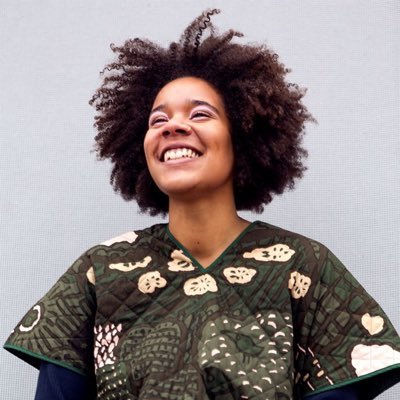Casino Égalité is a dream of strengthening solidarity and sharing within the cultural scene. By celebrating chance and the luck of the draw, the idea is to give art and artists space(s) in which to be unexpected and uncontrolled. Sortition could be a way of governing such spaces to strengthen the feeling of equality, where responsibility and possibility go hand-in-hand. This session contains deliberation, gambling and redistributing.
Agenda track: 4 Heterodox institutions
Session type: New experimental models
Interaction level: Some
Movement level: None
Screen need: Good to have
Day: Friday 24 September
The initiative, which goes under the working title Casino Égalité, aims to create a new cultural oasis for the independent theatre scene in Helsinki and to work as an experiment of an alternative way of governing, tackling the challenges of meritocracy, hierarchy and lobbyism.
This venture has two exceptional features it wants to experiment on: governance by rotation of responsibility and sharing of resources between institutional and independent players. The goal of both is to allow for greater diversity of approaches in performance arts.
The field of performing arts is often not really lacking infrastructure nor material resources required for production. The problem is rather that the resource distribution is asymmetrical, leaving out the ever growing pool of theatre freelancers. There is a substantial workforce of artists hungering for the opportunity to create and present their art, but they have very limited possibilities to do so. Access to resources is regulated by a set of opaque requirements difficult to decode and held aback by rigid structures. Getting the chance to produce one’s work is often not a question of skills or passion, nor even the luck of the draw.
The whole venture of Casino Égalité is based on exactly that – the luck of the draw, namely; governing by sortition. From selecting the productions of the upcoming season to the curation of additional programmes; to appointing administrative and technical staff; all is based on the rotation of responsibility, selected through sortition. This means that the topics and aesthetics of the productions and additional programming are liberated from conformism to trends and cronyism. It also means that the artists and ensembles creating these have no pressure to have impressive résumés or charming personalities.
Instead, the pool of professionals engaged in the (serious) play of Casino Égalité all have equal responsibility for managing the venture, and equal possibility to produce and realise their artistic work, regardless of status, merit or charisma.
By practicing sortition as the principal modus operandi, which is not a new invention as a democratic practice (see previous examples here or here), this cultural oasis would on a broader spectrum function also as a laboratory for an alternative way of governance that tackles the challenges of meritocracy, hierarchy, bias and lobbyism. These phenomena undermine both diversity in the arts, as well as from a broader societal point of view threaten belief in change through elections and representative democracy.
This session is for everyone who enjoys culture and arts, indeterminacy and gambling, art practitioners, institutions and funders. The aim is to gather unexpected perspectives and connections to further develop the initiative. Also, the session hopefully awakes the pleasures of sharing and gambling and gives a glimpse of the possibility of sustainability without austerity to the participants.
Rasmus Slätis is a Finnish theatre maker engaged in acting, teaching theatre and trying to make spaces of freedom for artists and art. Having been based in Berlin the past decade he has recently returned to his hometown, Helsinki.
Twitter: @rabbeson
Website: www.rasmusslatis.com
Some links on sortition as a democratic practice:
Voting undermines the will of the people. It’s time to replace it with sortition.
https://www.theguardian.com/australia-news/2018/oct/14/voting-undermines-the-will-of-the-people-its-time-to-replace-it-with-sortition
The Irish citizens assembly chooses representatives by lottery not election.
https://www.buildinganewreality.com/the-irish-citizens-assembly-chooses-representatives-by-lottery-not-election
What if We Selected our Leaders by Lottery? Democracy by Sortition, Liberal Elections and Communist Revolutionaries
https://onlinelibrary.wiley.com/doi/full/10.1111/dech.12651
Brett Henning: What if we replaced politicians with randomly selected people?
https://www.ted.com/talks/brett_hennig_what_if_we_replaced_politicians_with_randomly_selected_people?language=en
Photo by Jussi Helsten, Helsinki Marketing




 Akunna Onwen
Akunna Onwen




 With its 210,000 members, Service Union United PAM is the biggest trade union in Finland. They represent people employed in the private service sector. So next time in Finland you visit a store, a restaurant or see your office cleaner, say hi! They are likely to be a member of PAM. Service Union PAM wants to be a strong, relevant, modern union for years to come and that is why it is one of the founding members of the Untitled Alliance. This session is a continuation of the rewarding work theme PAM explored at Untitled Festival 2020.
With its 210,000 members, Service Union United PAM is the biggest trade union in Finland. They represent people employed in the private service sector. So next time in Finland you visit a store, a restaurant or see your office cleaner, say hi! They are likely to be a member of PAM. Service Union PAM wants to be a strong, relevant, modern union for years to come and that is why it is one of the founding members of the Untitled Alliance. This session is a continuation of the rewarding work theme PAM explored at Untitled Festival 2020.